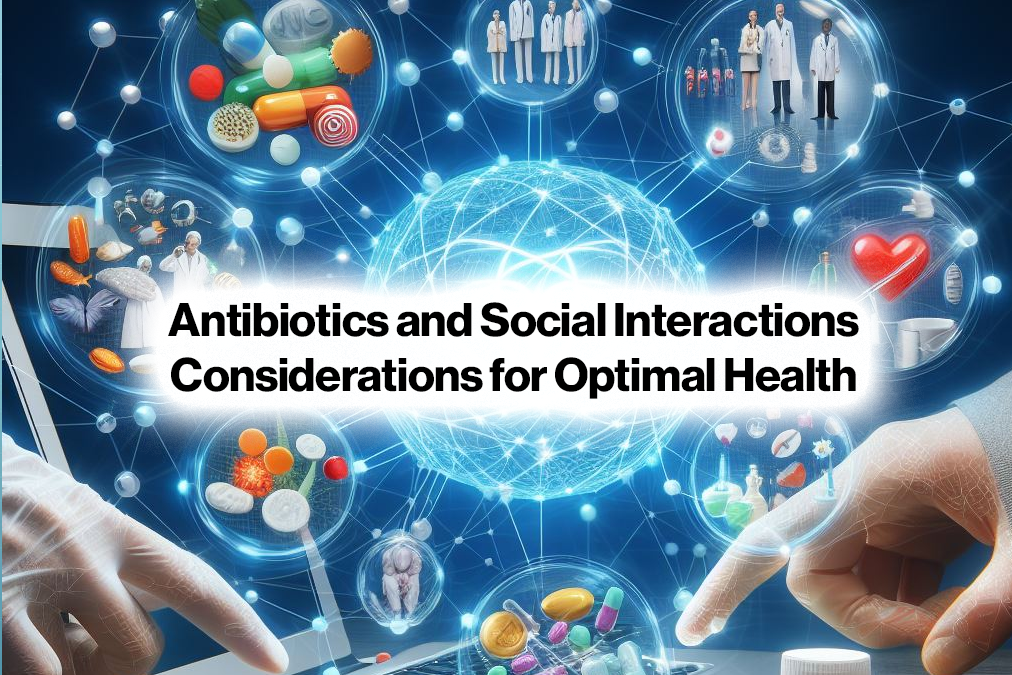In the fast-paced world we live in, where social interactions are integral to our daily lives, it’s important to understand the implications of antibiotics on these interactions. Antibiotics, while indispensable for treating various infections, can have an impact beyond their intended use. In this article, we delve into the complex relationship between antibiotics and social interactions, shedding light on important considerations for maintaining optimal health.
The Role of Antibiotics in Modern Healthcare
Antibiotics have revolutionized modern medicine by effectively combating bacterial infections. They work by targeting and eliminating harmful bacteria, allowing our bodies to recover from illnesses that would otherwise pose serious threats. From minor ailments like strep throat to life-threatening conditions like sepsis, antibiotics have saved countless lives.
Unveiling the Microbiome: Our Complex Ecosystem
In recent years, scientific research has uncovered the intricate world of our microbiome – the vast collection of microorganisms residing in our bodies. This ecosystem plays a pivotal role in various aspects of our health, including digestion, immune system regulation, and even mood. Antibiotics, however, are not selective in their actions. While they target harmful bacteria, they can also disrupt the delicate balance of the microbiome.
The Ripple Effect on Social Interactions
A lesser-known aspect of antibiotics is their potential influence on social interactions. Our well-being extends beyond physical health; it encompasses mental and emotional aspects as well. The microbiome has been linked to mood regulation, and disruptions caused by antibiotics could potentially affect our social behavior. Although research in this area is ongoing, it’s clear that our overall health can influence the quality of our interactions.
Considerations for Prescribing Antibiotics
Medical practitioners are increasingly aware of the broader impacts of antibiotics. When prescribing antibiotics, they must weigh the benefits against the potential risks, including the disruption of the microbiome. In cases where antibiotics are necessary, healthcare providers may also recommend probiotics to mitigate potential negative effects on the microbiome.
Maintaining Microbiome Health
Given the significance of the microbiome in maintaining overall well-being, it’s important to take proactive steps to support its health, especially after a course of antibiotics. Incorporating a balanced diet rich in fiber, fermented foods, and prebiotics can promote the growth of beneficial bacteria. Additionally, staying hydrated, managing stress, and getting regular exercise contribute to a thriving microbiome.
The Psychological Aspect: Confidence and Interactions
Beyond the physiological effects, antibiotics can also impact our psychological state. Consider a scenario where an individual’s self-esteem is affected by changes in their physical appearance due to antibiotic use. This alteration could potentially influence their confidence in social interactions. Recognizing these potential psychological effects is crucial in understanding the comprehensive impact of antibiotics.
Educational Initiatives for Informed Decisions
Raising awareness about the multifaceted effects of antibiotics is vital for individuals making informed decisions about their health. Educational initiatives can empower people to ask pertinent questions when prescribed antibiotics. By understanding potential risks and benefits, individuals can actively participate in their healthcare journey.
Conclusion
In a world that thrives on social interactions, understanding the far-reaching effects of antibiotics is essential for holistic well-being. While antibiotics serve as indispensable tools for combating infections, their influence on our microbiome and, consequently, our social interactions, should not be underestimated. By considering the broader implications of antibiotic use and taking proactive measures to support our microbiome, we can strike a balance between optimal health and meaningful social interactions.

Leave a Reply